Under mounting criticism for refusing to provide refunds on cancelled flights, Air Canada recently announced that they will be rolling out a new flexible rebooking policy.
Instead of receiving a non-transferrable travel credit with two-year validity, customers may now request a fully transferrable voucher with no expiry date (equivalent to an Air Canada gift card), or to convert the remaining value of their ticket into Aeroplan miles at 65% higher than the usual rate.
(In addition, customers who have booked refundable tickets may also request a full refund to the original method of payment – that hasn’t changed.)
While Air Canada’s Ready for Takeoff page mentions these additional new goodwill options, it provides precious few details on how the conversion process into Aeroplan miles actually works in practice. I therefore decided to book a couple of refundable tickets for a test run.
In This Post
- Let’s Take It for a Spin
- Should You Buy Aeroplan Miles at 1.8cpp?
- What About Tickets Issued by Travel Agencies?
- Conclusion
Let’s Take It for a Spin
I booked two refundable fares with Air Canada and see what refund options I’d be offered when I choose to cancel: a Calgary–Vancouver flight for $257.38 and a New York–Montreal flight for $261.96.
As a general rule in North America, for the first 24 hours after your booking, you’re able to cancel for free and get a full refund back to your original method of payment:

Then, shortly after 24 hours had passed, clicking the “Cancel Flight” button led me to a new screen to choose between one of three options: a full refund, a flexible Air Canada Travel Voucher, and a conversion into Aeroplan miles.
I was especially curious how the number of Aeroplan miles would be calculated.
Recall that the standard rate at which Aeroplan sells miles is 3 cents per point (cpp) (CAD), and that when they first launched the Buy Miles feature, there was a bonus of at least 65% attached to the purchased miles.
With a 65% bonus, the effective rate at which you were buying Aeroplan miles was 1.8cpp (CAD), so that’s the rate that I would expect to be used for calculating the conversion from your Air Canada ticket under this goodwill policy.
Nevertheless, Air Canada’s website uses somewhat confusing language to describe the process:
Aeroplan Miles – Convert and transfer the remaining value of all tickets and associated services, minus any taxes, into Aeroplan Miles, and get an additional 65% bonus miles.
What exactly does “minus any taxes” mean? Does this refer to the taxes and fees associated with the booking (as opposed to the base fare)?
The answer is no: the full amount of your ticket – including the base fare, the government-imposed taxes and fees, the airport improvement fees, and any other miscellaneous fees bundled into the all-in price – are all included in the refunded amount.
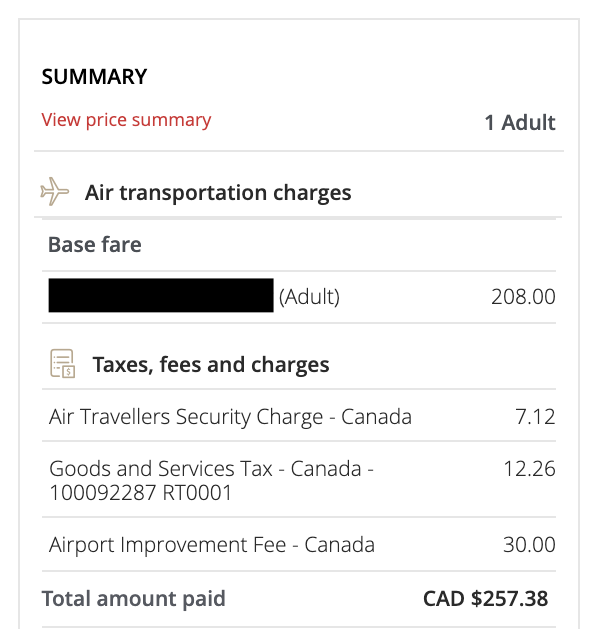
Instead, “minus any taxes” refers to the sales tax on the Aeroplan miles that you receive as part of the conversion.
After all, when converting the unused value of your ticket into miles, what you’re effectively doing is using the money that you’ve paid towards a ticket to buy Aeroplan miles at 1.8cpp instead. If you’re a Canadian resident, you’d have to pay sales tax on that purchase, just like you would when you buy miles from the program directly.
Let’s forget about my test-drive bookings for a second. Someone I know, an Alberta resident, had sent me the following screenshot when he refunded his own Air Canada ticket and got the value converted into Aeroplan miles:

You’ll see that, when calculating the number of Aeroplan miles to be converted, the 5% Alberta GST is “backed out” from the total remaining value of the ticket.
In essence, when you use a total sum of $1,942.38 to purchase Aeroplan miles at 1.8cpp as an Alberta resident, you’d pay $92.49 worth of GST and receive $1,849.89 worth of actual miles. (The specific math here is 1,942.39 / 1.05 = 1,849.89.)
Then, that remaining value of $1,849.89 is used to calculate how many Aeroplan miles you get. If $1,849.89 is equivalent to 184,989 Canadian cents, and we’re acquiring Aeroplan miles at 1.8 cents per point, then we need to divide 184989 by 1.8 to arrive at 102,771 miles – or 102,770 miles when rounded down to the nearest 10 miles, which seems to be the standard practice.
The Alberta resident effectively paid a 5% GST. I imagine that an Ontarian would have 13% HST backed out from their total, a Nova Scotian would have 15% backed out, and so on.
How is your province of residence determined? My feeling is that it’s based on the address in your Aeroplan account. Indeed, I myself happen to have my US address listed in my Aeroplan account, and going back to my test bookings, I was pleasantly surprised to discover that there was no tax being backed out:
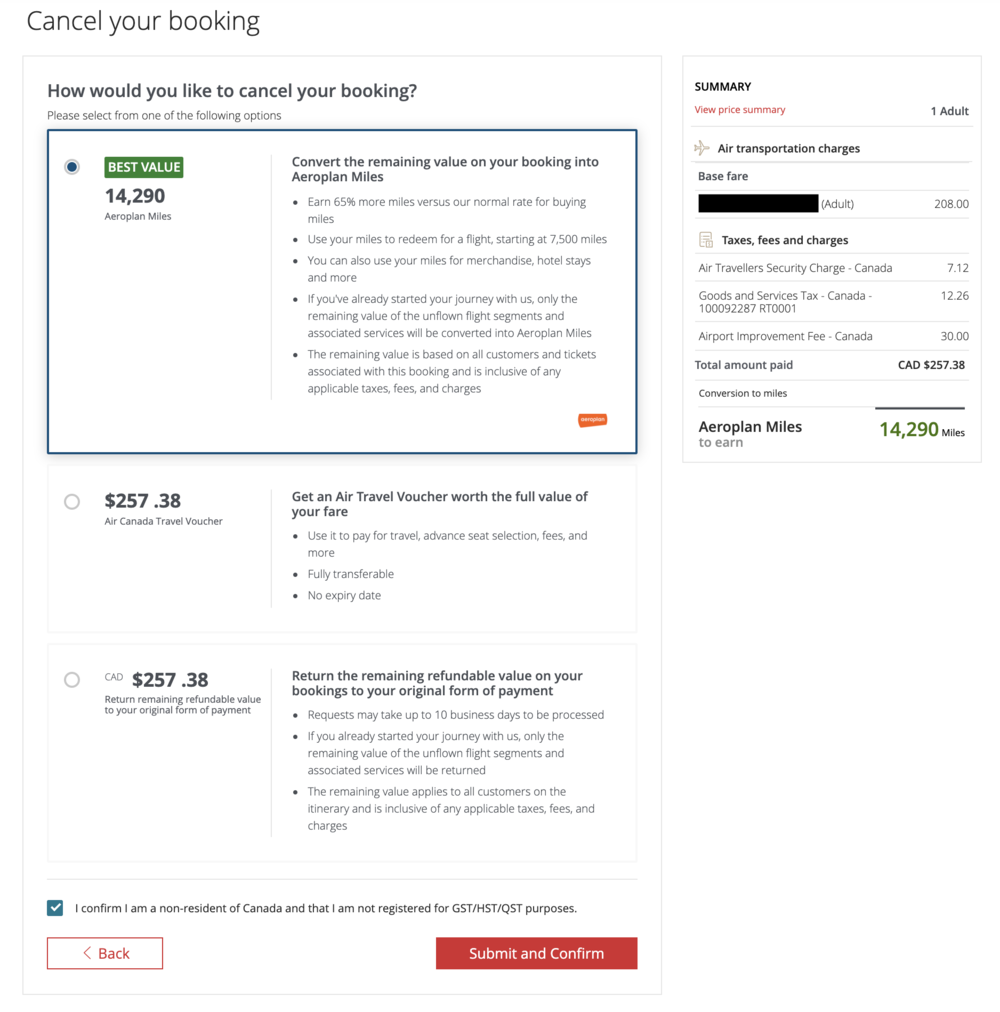
If we take the full ticket value of $257.38 and divide it by 1.8cpp, we get 14,299 miles – or 14,290 miles when rounded down to the nearest 10 miles.
The same was true for my second test booking: take the full value of $261.96, divide it by 1.8cpp, and round down to the nearest 10 miles, and we get 14,550 miles:
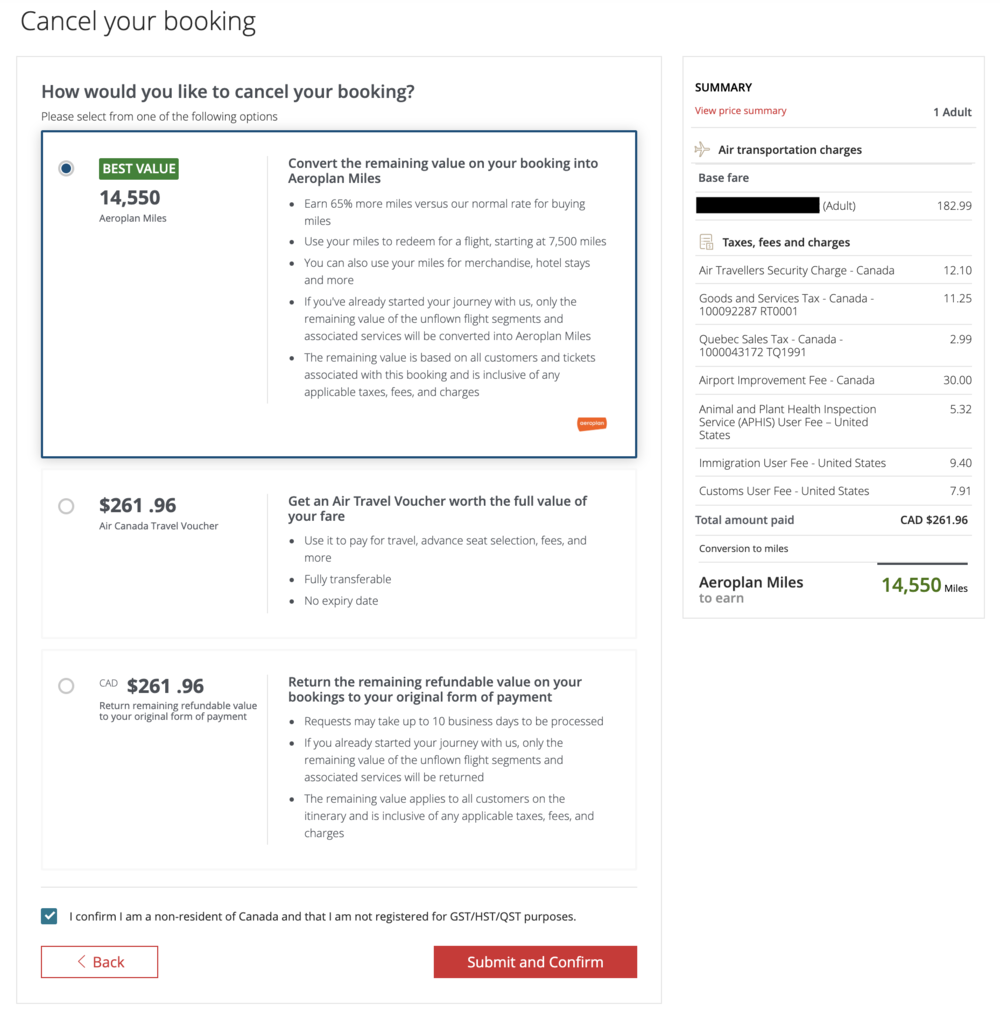
Indeed, non-Canadian residents will benefit from the highest rate when converting tickets into Aeroplan miles – this is equivalent to how you don’t get charged any sales tax when you use a US credit card to buy Aeroplan miles directly from the program either.
I decided to follow through with one of the test bookings and convert the ticket into miles. After all, as long as I redeem these miles for higher than 1.8cpp later, I’m coming out ahead.
The confirmation page states that it may take up to four weeks to receive the miles in your Aeroplan account, so don’t count on being able to redeem these miles instantly:
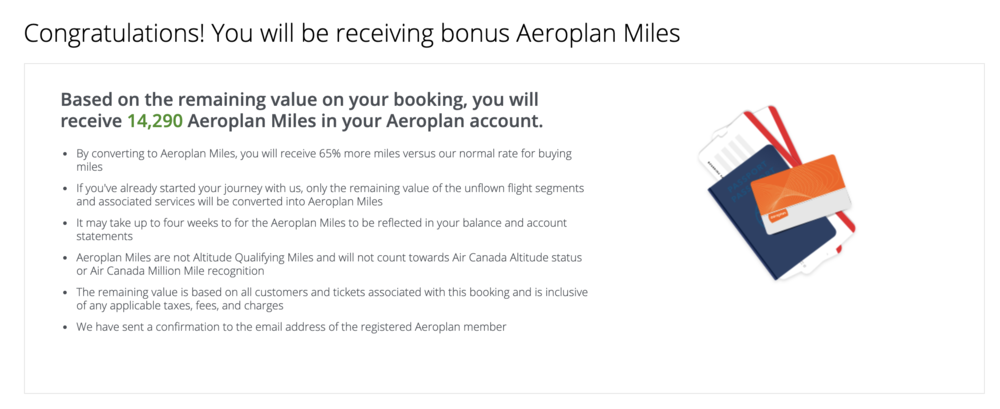
Should You Buy Aeroplan Miles at 1.8cpp?
One consequence of this new policy is that the Aeroplan Buy Miles promotion has effectively never ended – the ability to purchase Aeroplan miles at 1.8cpp is essentially still widely available. What’s more, unlike when purchasing miles directly through the program, there are no limits to how many Aeroplan miles you can buy.
On the surface, this means that many flights and itineraries would be easily bookable at a fraction of their usual cost. For example, an Aeroplan Mini-RTW in business class begins at 150,000 Aeroplan miles, which would cost only $2,700.
Nevertheless, my usual warnings about buying miles still apply: there’s plenty of uncertainty in the travel landscape these days, so it wouldn’t be prudent to acquire a huge chunk of miles now with a view to use them over the next few years.
Moreover, also consider how many miles you currently have or can easily earn via credit card signup bonuses – there’s no sense in spending cash to buy miles if you’re already sitting on a large pile.
Only if you don’t have a meaningful amount of Aeroplan miles right now, but would like to earn a large sum for immediate use, would it make sense to consider acquiring them at 1.8 cents apiece.
What About Tickets Issued by Travel Agencies?
Currently, the ability to convert the unused value of tickets into Aeroplan miles at a rate of 1.8cpp is only enabled for bookings made directly with Air Canada, rather than bookings made via travel agencies (which includes tickets issued by other loyalty programs like American Express Membership Rewards, CIBC Aventura, Air Miles, etc.)
A recent communication with American Express Travel on the matter returned the following:

Air Canada’s Ready for Takeoff page continues to say: “For customers who booked through a travel agency, Air Canada is working to make these options available. Please contact your travel agent for more information.”
Meanwhile, the website pegs June 15 as the date on which several other features relating to the new goodwill policy are expected to be enabled, so perhaps the travel agencies will also receive their instructions on that date.
I’ve reached out to Air Canada to see if there’s an expected timeline for bookings by travel agencies to receive this functionality, and will update this space when I hear back.
Conclusion
While Air Canada’s new rebooking and cancellation policies still fall short of fulfilling their obligations under the law to provide refunds on cancelled flights, they at least open up something of a sweet spot in allowing customers to convert the value of their tickets into Aeroplan miles at an effective rate of 1.8cpp.
The online conversion function is relatively smooth, with provincial GST being applied on the amount for Aeroplan members with Canadian addresses, and a four-week timeline for the Aeroplan miles to arrive in your account.
I expect that a good chunk of customers with cancelled flights will end up choosing this option, especially if they’re confident in achieving higher than a 1.8cpp return on the Aeroplan miles when it’s time to redeem.












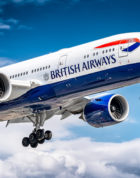


Do you know when the option to convert to miles instead of a refund pops up? I want to cancel to miles for a flight that I booked 2 days ago, but it just offers regular refund or gift card at the moment…. Thanks!
Just called Air Canada now (mid Dec) and they said now it’s taking 10 weeks to process these credits, I’m speechless… in this day and age that we still have 9-5 workers doing work like this???
Hello Ricky! This is a very clear post. Thank you very much!
I have a correction and a request to suggest.
– First the correction. In your original post above, the 5% tax is not an Alberta sales tax, but the regular GST. Indeed, to my knowledge, there is no sales tax in Alberta.
– Then the suggestion. Rather than indications like “5 months ago” or “3 weeks ago” to timestamp the various posts, could it be possible to give the real date. It has the two advantages of (1) retaining the true sequence of posts, even the older ones, and (2) not changing depending on the date you read them.
Thank you for your replies.
Thanks Ruddy, I’ve updated the article to distinguish between sales tax and GST. Also thanks for your suggestion about how the comment timestamps are displayed, I’ll take it into account.
Hi Ricky,
I have a an air Canada ticket ( via lufthansa) early October. It’s looks like it might be cancelled. It says ticket is non refundable. If AC cancels my flight based on lufthansa cancel my connecting flight are they obligated to put me on a partner flight? And if no will they issue areoplan miles or only a travel voucher that expires 2021?it’s so confusing..
Tee
I’ve been collecting points via CC bonuses trying to book a J itinerary RTW for 2… with state of travel, that trip likely won’t be until late 2021/2022. With what we now know of the new Aeroplan program out and plans for a redemption 1-1.5 years later… Is it still worth it to take the miles or are we better off to go with non-expiring voucher?
I have 3 round trip tickets for YYZ-SFO that AC cancelled which I didn’t make a decision yet (back & forth with US DOT dragging out longer than expected). Based on your calculations, I should get 86,045 miles. With the new variable redemption levels, this covers 3 economy tickets on partner airlines or if on AC, covers the low end (25k-28k points), but not at the top end (29k-35k).
I just cancelled Air Canada flight to Rome in early October. Asked for the miles…I paid in US dollars…$4700. Would the miles I get be based on Canadian dollar exchange rate? Thanks,
Quick update, miles appeared on my account!
9 June to 17 July = 5 weeks 3 days
Aaaaand my miles are here too! Looks like they did all of it in a batch.
10 June to 17 July = 5 weeks 2 days.
Here’s my update, cancelled my flight on June 3rd. Cancellation e-mail said allow up to 4 weeks for the travel voucher to arrive. Called today (it’s been more than 6 weeks), first lady just said that their internal memo said it should take 6 to 8 weeks. I asked if she could just switch my option to take the miles with the 65% instead, she said no. She did say she could go in the file and make a booking right away, but I was annoyed with her and hung up. Called again, the guy said he looked at my booking and even though I cancelled it wasn’t showing properly that I would be getting a voucher… He was told he could switch it to give the Miles with 65% bonus instead, went through the request put that in then I asked when the miles would show up… another wait on hold. When he came back now he said that my voucher request was already being processed so he doesn’t know if his request to get me miles instead would supersede it or not (either way, miles or voucher he says are supposed to take 6-8 weeks now). So the conclusion from Air Canada at this point is an all around ‘who knows what the heck will happen or when’. lol
AC representative told me through Facebook that it is caused by "manual handling delay", it’s really hard to believe they are still doing "paperwork" nowadays when there are lots of technology available to handle this. Shame on our "Flag Carrier"….
Any day now right?…. This is getting ridiculous
Update for folks: note that many people (including myself) are now waiting for more than the advertised 4 weeks for the Aeroplan miles to appear in our accounts. AC Twitter says "it’s still in the queue for processing" and that was it.
Just a heads-up in case you need the miles urgently.
It’s been 6 weeks for your friend Ricky, did the miles show up in his account?
Still nothing. Somehow I’m not surprised.
When I cancelled on June 15, the refund email was already saying up to six weeks, I didn’t think they would actually take up to six weeks!
Just called AC hotline and now the robot is saying up to SIX week instead of FOUR that was stated before…
Hey Ricky,
In this example you purchased two “refundable fares”. Can you still cancel and get the Aeroplan points when booking “economy standard”. If I understand the new flexible booking rules running until June 30th this is allowable also?
Also, do you have the choice of which Aeroplan account the points go into when you cancel or is it simply split between the passengers as per the original booking?
Yes, the same options (gift card and Aeroplan miles) still apply if you book non-refundable fares ‚Äì you just won’t have the option to get a full refund to the original method of payment.
As per a reader’s data point, all the Aeroplan miles associated with the booking go into the primary passenger’s Aeroplan account, rather than being split across passengers.
calculated the tax rate wrong… it is 13%
DP: Here is my experience with transferring over my points using this strategy…
– Purchased 2 tickets YYZ-YUL for $487.64.
РRedeemed 24382 MR points to “zero out” the charge from my credit card
– Cancelled the flight a few days later and received 23,970 aeroplan points
– $487.64 original amount paid minus $56.10 (effectively 15% HST) for a total amount to be converted to Aeroplan miles of $431.54
РThe 15% HST was unexpected since I live in Ontario and should have paid 13%. Is this the higher of the 2 since Quebec’s HST rate is 14.975%?
– Added up the taxes that I paid on the ticket and it amounted to $57.14
– Essentially a 98.3% redemption rate for points on the cash price
– Additionally, I received the double the points promo on the $487.64 of travel purchases (4x points) for an additional 1952 MR points
– Assuming I redeem these 1952 points using the double the points redemption rate for an additional $39.04 on a cash ticket, at the 0.983 effective rate as shown above, I can net out an additional 3837 points.
– So, for 24,382 MR points, I received 27,807 aeroplan points. This amounts to a 14% premium ((27807-24382)/24382=1.14) over the typical 1-1 transfer rate.
Not the 21% Ricky saw but still a fantastic way to transfer over points!
Thanks for the article and strategy.
So it’s now possible to convert the ticket into miles, even if you booked third party? Air Canada website is still showing the same notice “Air Canada is working to make these options available”
I do not believe this is possible yet. In Nuno’s case, he had purchased directly from AC on his Amex card and then redeemed MR points against the purchase to offset it with statement credit.
Ah, I understand. I’m European and not informed about these promotions, but have to spent my Amex “travel credits” somehow. Thanks for clarification 🙂
Awesome Nuno! The difference is likely due to the 13% Ontario HST.
DP: Live in BC and have same address listed on my Aeroplan account. Only 5% GST was charged when converting ticket value to Aeroplan Miles instead of the expected 12% for GST/PST.
Total Air Canada Ticket Cost: $596.66
Aeroplan Miles conversion:
GST: $28.41
Total amount converted to miles: $568.25
Total Aeroplan Miles: 31,560
I’m not super familiar with Cibc aventura program. But my husband has 24000 aventura points. If I book an Air Canada flight with the points, then cancel, what is amount used to calculate the voucher or Aeroplan value?
Three return flights from Ottawa to Lisbon takes 180,000 Aeroplan points. We were offered 141,000 pts when we cancelled. We took the travel voucher instead.
I think you have your numbers mixed up.
This is incorrect, the $257.38 ticket only earns 14,290 Aeroplan miles.
Thanks for catching that Richard, I’ve corrected it. However the effective ratio of 2/1.8 = 1.11 (or better when you factor in the points earned) should still hold.
I’ll echo the previous commments. Love the step by step detail. Reminds me of Craig and Philly’s experiments over at Middleagemiles.
Great analysis, I am very impressed with the level of details in this post.
Now let’s all pray the Aeroplan reward chart won’t get devalued after all these sweet deals.
With devaluations being a natural part of the game and the Aeroplan chart remaining untouched for the past five years, I think the only question is not if, but how much, of a devaluation we’ll see.
Ricky, this is a great post! I appreciate your attention to detail.
Doesn’t appear to be any great potential for arbitrage when using your TD Rewards points through Expedia to purchase an AC ticket then canceling and converting to AP points. OR maybe the ability to convert your TD Rewards points to AP points is the arbitrage unless I missed something ?
Would we be able to convert to Aeroplan Pts if the flights are already in a credit, I have a number of flights I cancelled and have a credit for, may be worth trying this
Yes as I mentioned in my reply to Anmol, this functionality should be enabled on June 15.
Ricky – this is a fantastic post that has perfectly answered to the question I’ve had! It would be really helpful if you could update on how long it actually takes to receive your miles later. Thanks!
Will do!
Any update yet how long the AP miles get credited after cancelling your flight? Thanks.
Nothing yet 8 days in.
Any Update Ricky?
Nothing yet 13 days in. Friend of mine is waiting 19 days and hasn’t seen the miles yet either.
@Toto: He hasn’t received them either and it’s been more than 4 weeks. Looks like we’re all going to play the waiting game.
How about your friend Ricky, it’s almost 4 weeks for him/her haha
@Gwen: Still nothing, 22 days in.
Still nothing yet eh?
Currently on 18th day, nothing show up on my account…..
Thanks for the update. I’m waiting for mine too. I’m 9 days in and still nothing. Silly how long it takes given the digital age. They already have your $$$ so the miles should post immediately or at least after a couple business days.
Does anyone have any data points of converting existing Air Canada travel credit or gift card into miles using this approach?
As per the website, existing Air Canada travel credits (from previously cancelled flights) will be convertible as of June 15. I don’t think the same is true for Air Canada gift cards, though.
you can use a gift card to buy a flight and convert the flight into miles.
TRUE.